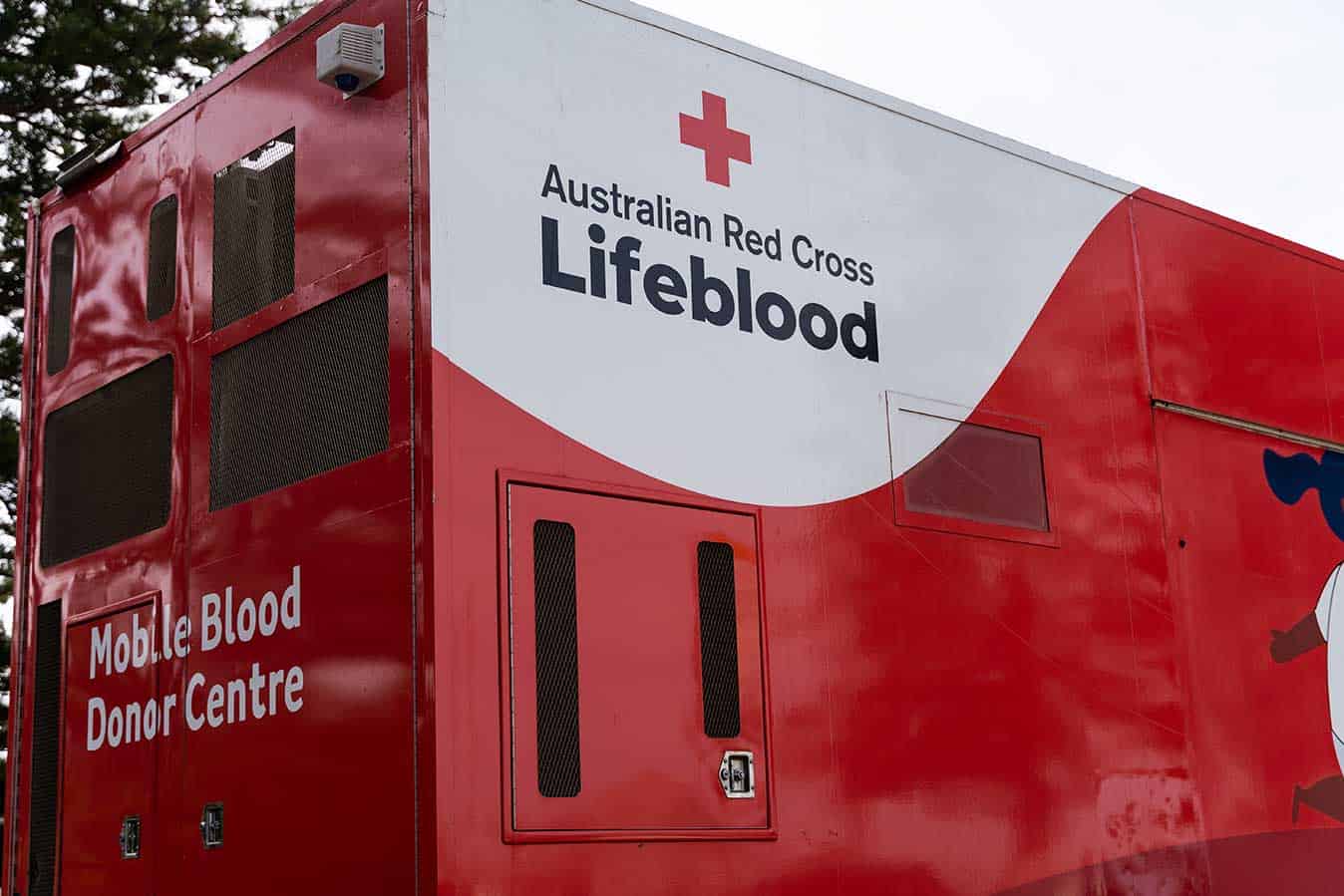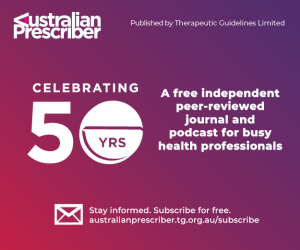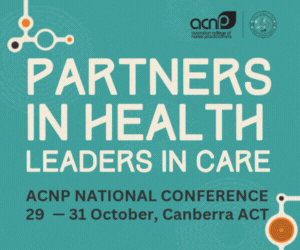“I just don’t think what they’ve put on the table for us so far is showing very much respect at all,” says Lifeblood enrolled nurse (EN) Kelly Costello about her employer’s proposed single enterprise agreement, which for the first time would cover all workers across the country.
Kelly has worked at the Australian Red Cross’ Lismore Donor Centre in NSW for more than a decade. As part of a team including registered nurses (RNs, enrolled nurses (ENs) and nursing assistants (DSNAs), she helps ensure the nation’s supply of blood products, including whole blood, platelets and plasma, is safely supplied to hospitals and other health providers.
“It’s a really amazing space to work in,” she tells the ANMJ.
“All the donors that come in, they’re coming in of their own free will, and they’re doing something that helps people, but is of no benefit to themselves. Having worked in the hospital system, and seeing how important these products are to the patients and what a difference it makes, it’s really fulfilling to be on the flipside and be part of providing those products.”
Kelly is among hundreds of Lifeblood ANMF members across the country currently negotiating a proposed new enterprise agreement and rallying against a number of sticking points, including plans to freeze progression for many nurses and DSNAs working at lower pay points at pay point 4, the length of an ordinary shift changing to between at least four hours and no more than 10 hours, and cuts to public holiday entitlements for NSW part-time workers.

Overarchingly, Lifeblood is proposing a single enterprise agreement to cover workers nationally. Yet, many branches, including NSW, the ACT and NT, have been negotiating to replace their expired agreements for years, all while wages have gone backwards in real terms once inflation is factored in.
Kelly, who says NSW members haven’t received a wage adjustment since May, 2022, first learned about Lifeblood’s plans earlier this year and, ever since, workers have only been “drip-fed” information from management about proposed cuts and changes.
While it won’t impact her directly, having reached the highest pay point within her role, Kelly believes Lifeblood’s attempt to remove increments will hold back staff progression. Equally, its plan to appoint newly employed nurses somewhere in a pay range within current bands, which can differ up to $20,000, lacks transparency.
One of Kelly’s biggest concerns lies with changes to ordinary shift hours. Most Lifeblood staff work part-time, averaging about 20-30 hours per week, she says.
“In the current climate with CPI and the cost of living, often people need to have a second job,” Kelly reveals.
“With splitting hours, and having minimal hours over a maximum number of days, it makes it either impossible for nurses and DSNAs to have extra employment, or they’re having to work seven days a week, or work before and after short shifts. The work-life balance just isn’t there.”
Kelly says ANMF members employed by Lifeblood, who earlier last month took part in an historic national mass industrial online meeting to tackle issues, were becoming increasingly frustrated with stalled negotiations. More than half of Lifeblood’s donor workforce is based in Victoria and NSW.
“Lifeblood talks about wanting to be an employer of choice, but I think to be an employer of choice, you have to show respect to your workers,” Kelly says.
“Some of our colleagues across the other states and territories – there’s cuts everywhere, some states more than others. I don’t think Lifeblood realises that it’s not just about us, it’s about all our colleagues, and all our members, and how it’s going to affect everybody.”
Down in Victoria, Lifeblood registered nurse Richard Casey, who has worked for the blood donation service for three years, has been left feeling similarly frustrated by his employer’s plans.
He believes a freeze on increments could threaten the sustainability of the service’s workforce.
“At a certain point, it basically takes away any incentive to really stay with Lifeblood,” he argues.
“Because by the time you’ve been on for another four years, you’ll actually probably be making less money than if you still had just the regular increments.”
For Richard, significant concerns within the proposed agreement include hard-fought state-specific conditions being cut from the new EA. For example, Victorian Lifeblood employees get paid less than other states, however, arguably enjoy better entitlements, such as five weeks of annual leave, an enshrined disciplinary clause and a skill mix provision which provides safe levels of DSNAs per site supported by registered and enrolled nurses. However, under its proposed agreement, Lifeblood is planning to remove the disciplinary clause, and has refused to include a clause for a skill mix which ensures enough of the right nurses are available each shift.
“In order to avoid staffing more nurses, they are giving themselves the power to reduce the role of RNs and pile more responsibility on DSNAs, who are already severely undervalued,” Richard says.

Further, he says the proposed single national agreement offers five weeks of annual leave to all nurses and DSNAs who don’t currently receive it but doesn’t, at the same time, lift Victorian and Tasmanian wage rates up to higher levels enjoyed by other states. This means Victorian workers could be disadvantaged.
Like Kelly, Richard says proposed changes to the standard shift, which currently has a minimum of six in Victoria, to four, makes little sense.
“It would completely mess up our work-life balance. We could be potentially stuck on four-hour shifts, six, seven days in a row, which is absolutely a terrible loss of having a good work-life balance.”
Richard says he and most of his Lifeblood colleagues feel undervalued and unheard, with any concerns raised with management ignored and ending up “hitting a stone wall”.
He says attending the ANMF’s recent mass industrial online meeting, however, instilled him with the resolve to keep fighting for improved conditions.
“It was hugely encouraging to see so many Lifeblood employees that we wouldn’t really have the chance to interact with,” he says.
“To see us all come together, outside of work, on our own time, and really see that we’re not as isolated, or as alone as we sometimes feel at work or within our centres. It was great to see that so many shared the same opinions and that we’re united.”
Further bargaining meetings with Lifeblood are on the agenda, with the next scheduled for Monday, 9 October. The ANMF remains hopeful that the employer will reconsider their position on key outstanding issues yet to be resolved, including maintaining minimum shift lengths and increment/pay point progression, fair wage increases for all staff, and a clause to protect workloads/skill mix.
In a bid to ramp up negotiations, the ANMF will also hold a second mass industrial online meeting for Lifeblood employees on Sunday, 15 October, that will outline new member collective actions. If Lifeblood doesn’t come to the table, the ANMF says it may be forced to consider escalating matters, which could include applications for protected industrial action ballots and/or bargaining disputes with the Fair Work Commission.
While Richard is hopeful that Lifeblood and its staff can find a “good middle-ground”, he hasn’t ruled out taking industrial action.
“I think we’ve shown over the past few weeks that Lifeblood staff are quite united and we understand what our work is worth and how valuable we are. I think Lifeblood will be forced to see that,” Richard says.
Kelly hopes the second national industrial meeting, which is again expected to draw hundreds of members, ensures all employees are fully-educated about the proposed changes and their potential impact “so that when it comes time to vote, we know exactly what we’re voting for”.
While industrial action isn’t a step taken lightly, she, too, believes most employees would be willing to stand up and be heard.
“I think our members are quite willing to go down that path if that’s what has to happen.” Kelly declares.
“Of course, we don’t want it to get to that point. But if that’s what has to happen, to be heard and respected, then our members are willing to do that.”








